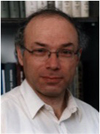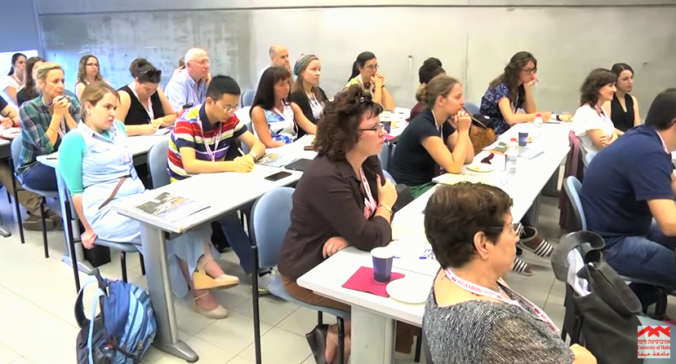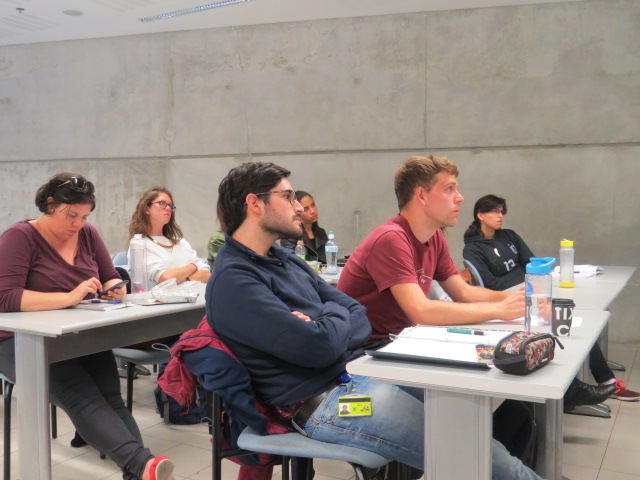 Our students participated in the second session of the new course in Holocaust Historiography with Professor Dan Michman of Yad Vashem and Bar Ilan University. The topic of the session was Holocaust Historiography: Polemics and Conceptualizations. As part of the Introduction Michman stated that there are a lot more historiographical studies published now than ever before and they are more analytical. However, there is still a division between German and Jewish scholarship and often the perpetrators and bystanders are detached from Jewish history. Personal histories have been a trend in recent years as historians write about family connections and how they are involved in their studies.
Our students participated in the second session of the new course in Holocaust Historiography with Professor Dan Michman of Yad Vashem and Bar Ilan University. The topic of the session was Holocaust Historiography: Polemics and Conceptualizations. As part of the Introduction Michman stated that there are a lot more historiographical studies published now than ever before and they are more analytical. However, there is still a division between German and Jewish scholarship and often the perpetrators and bystanders are detached from Jewish history. Personal histories have been a trend in recent years as historians write about family connections and how they are involved in their studies.

The first topic Michman addressed with our students was: Major Debates in Perpetrator History: Perspectives and Methodologies. Michman reviewed the debate between the intentionalist and functionalists camps and how their arguments have evolved over times through discussing Kershaw’s “Working Towards the Fuhrer” model and the theory on the interaction between the center and the periphery described by Browning in his volume “The Origins of the Final Solution.” Michman also discussed Hilberg’s different approach that uses models, patterns, and generalizations as a result of his background in political history and not history. Michman discussed the idea of a Sonderweg or special path in German history that some argue led to the Nazi rise to power and the perpetration of the Holocaust. Michman compared Browning’s “Ordinary Men” to Goldhagen’s “Hitler’s Willing Executioners” to discuss whether committing mass murder in universal that anyone is capable of or whether there was something unique in German culture that led to the Holocaust. Michman brought up the role of women as perpetrators. Michman touched on the debates regarding the role of European collaborators in the Holocaust, whether the Holocaust is unique or universal and if it can be compared to other genocides, and what sources should be used to reconstruct the history- documents or testimonies and what are the advantages and disadvantages of each source.

The second major topic Michman addressed was Major Debates in Jewish History: Scholarly Analyses vs. Learning Lessons and Working Through the Collective Trauma. Michman explained that the function of history among survivors began immediately after liberation and many used it to begin the process of healing. Many survivor historians researched the camps or ghettoes where they were imprisoned using German documentation to begin to answer the questions of why and how. Issues many Jewish historians focused on were the role of the Jewish councils in the German machinery of destruction, what is resistance, how and whether Jews outside of Europe tried to aid their brethren, whether the Holocaust was unique or is part of a pattern in Jewish history, and whether the Holocaust should become separate from or integrated into Jewish history.

During the final component of the session Michman taught our students how to know the contents of a book without reading it cover to cover by focusing on key ingredients and key tools. The key ingredients are the core, periodization, and extent of the book – the background of the historian, when and where the book was written, and the topics covered in it. The key tools are the title, table of contents, index, introduction, and conclusion. Our students worked with Michman to use these tools and ingredients to analyze some comprehensive histories of the Holocaust such as those written by Hillberg, Dawidowicz, Friedlander, and Cesarani. It was helpful for our students to see how much could be learned about an author’s approach, emphasis, and arguments from analyzing the title, table of contents, index, introduction, and conclusion of a book. The second session of the Historiography course was very useful and students are looking forward to the final session in the summer semester.
Interested in applying for our MA in Holocaust Studies Program? You can find the application and more information at our website: http://holocaust-studies.haifa.ac.il/
Reblogged this on Kattukse Vrienden voor Israël.
LikeLike